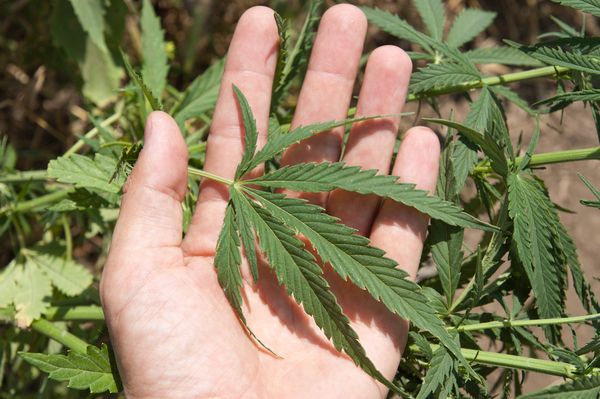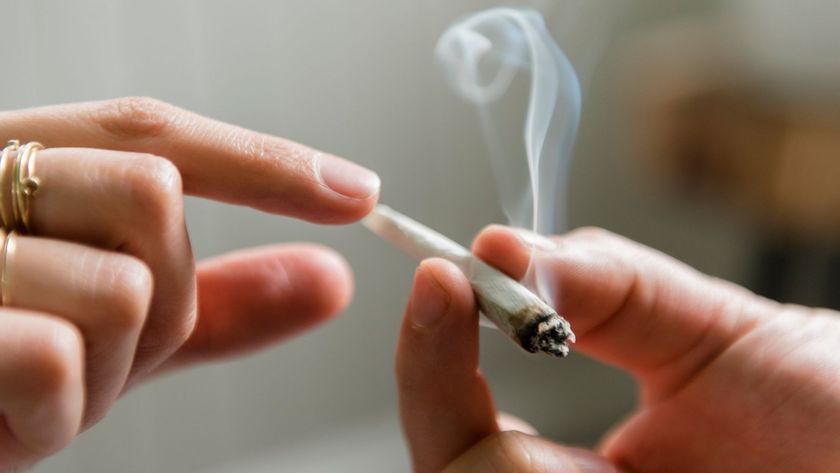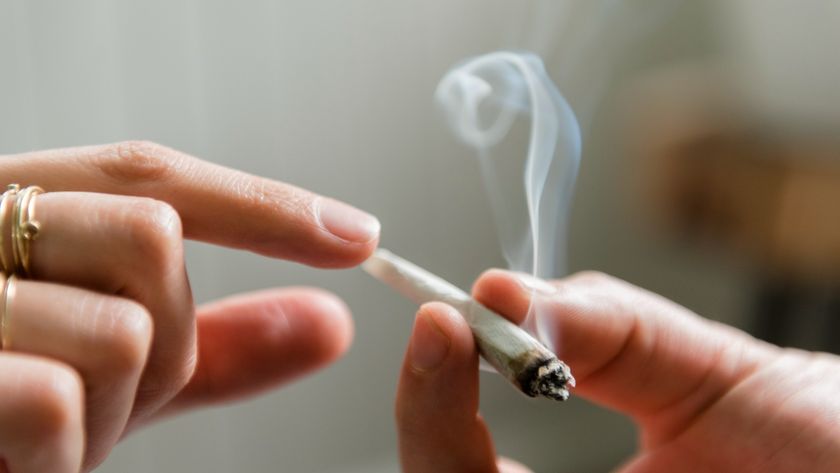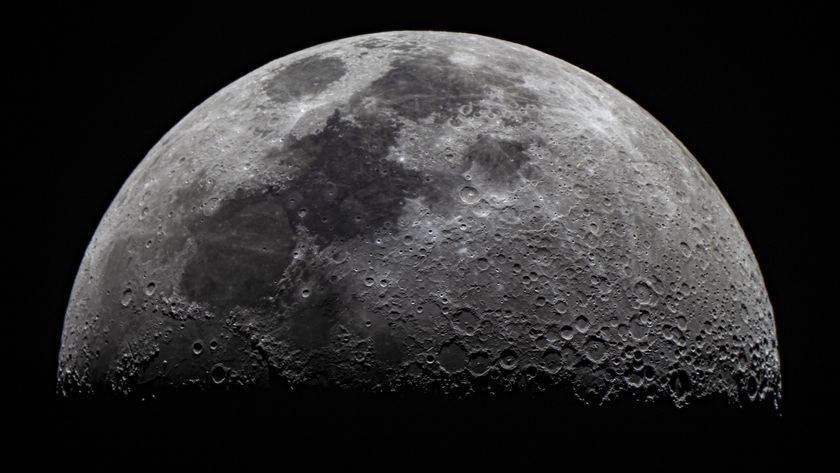How Marijuana May Drive the Brain into Psychosis

Two ingredients in marijuana have opposite effects on certain regions of the brain, according to a new study.
One chemical, called tetrahydrocannabinol (THC), increases the brain processes that can lead to symptoms of psychosis, while another compound, called cannabidiol, may negate such symptoms, according to the study.
Moreover, the findings are the first to use images of the brain to demonstrate that the reason symptoms of psychosis arise in marijuana users may be because THC interferes with the brain's ability to distinguish between stimuli that are important, and those that aren't, according to the study.
The results are detailed today (Jan. 2) in the journal Archives of General Psychiatry.
Marijuana and the brain
Previous research has found that THC can induce symptoms of psychosis in healthy people and worsen psychotic symptoms in people already experiencing them. Long-term cannabis use is also associated with an increased risk of schizophrenia, according to the study.
In terms of brain processing, psychotic symptoms have been linked to what researchers call abnormal "salience attribution," meaning that the brain has difficulty telling the difference between stimuli that are important, and those that aren't, according to the study.
Sign up for the Live Science daily newsletter now
Get the world’s most fascinating discoveries delivered straight to your inbox.
The study, led by Dr. Sagnik Bhattacharyya, a psychopharmacologist at King's College in London, included 15 health men who had occasionally used marijuana in the past. The researchers used functional magnetic resonance imaging (fMRI) scans to observe the men's brains after they took pills containing THC, cannabidiol or a placebo.
While inside the fMRI scanner, the men performed a computer task designed to measure their abilities to respond to a certain stimulus that was different from others. The images showed changes in the areas of the brain that are believed to be linked to symptoms of psychosis, according to the study.
The results showed that THC "significantly increased the severity of psychotic symptoms compared with placebo," according to the study. By contrast, there was no difference in psychotic symptoms seen between taking cannabidiol and a placebo.
The psychotic brain
The study showed that men taking THC had increased activity in the brain region called the prefrontal cortex, but lower activity in the region called the striatum. It is possible that these changes happened because THC alters the brain's levels of the neurotransmitter dopamine, according to the study.
"Altered prefrontal-striatal interactions are thought to be critical in the pathophysiologic characteristics of psychosis," the authors wrote in their conclusion. This is consistent with evidence that striatal and lateral prefrontal function are altered during salience processing in patients with psychosis, individuals at ultrahigh risk of psychosis, and persons in a drug-induced psychotic state
On the other hand, the effects that cannabidiol had on the brain suggested it has the opposite effect on psychotic symptoms. In line with other studies, the new results suggest the compound may have potential as an antipsychotic, the authors wrote.
The researchers noted that in brain imaging studies like this one, there is the possibility that a drug influences blood flow through the brain, which is what fMRIs measure, rather than actual activity of a brain region.
Pass it on: The compound THC in marijuana may increase symptoms of psychosis, while another compound called cannabidiol may decrease those symptoms.
This story was provided by MyHealthNewsDaily, sister site to LiveScience. Follow MyHealthNewsDaily on Twitter @MyHealth_MHND. Find us on Facebook.



